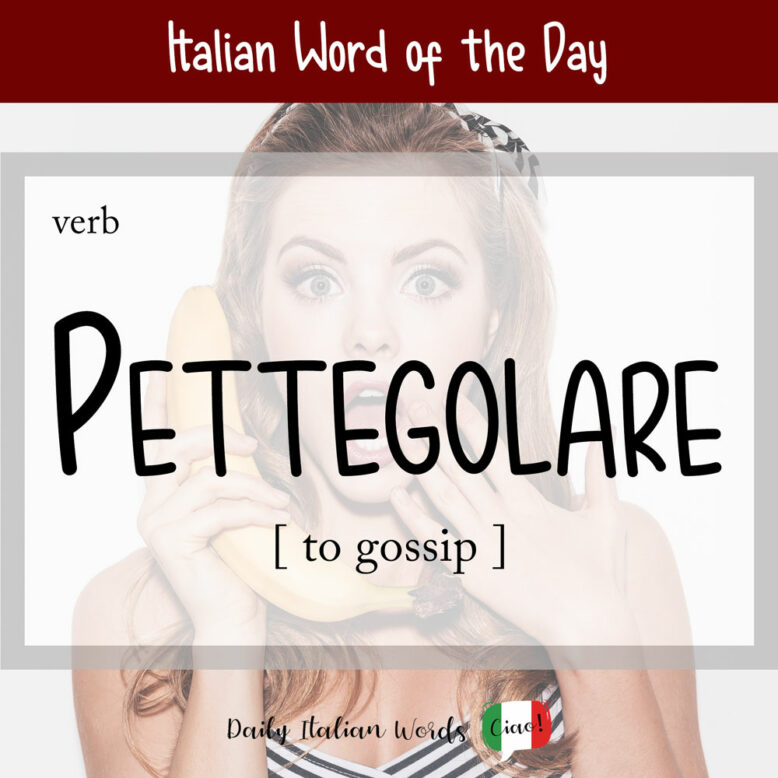The word for to gossip in Italian is pettegolare. It comes from the Venetian verb petegolar (to gossip) and the Venetian noun petegolo (gossip).

When pettegolare is followed by a direct object, the preposition su (on / about / above) or su + a definite article (sul, sulla, sui, sugli, sulle) is required.
Dai, smettila di pettegolare su di lui tutto il giorno!
Come on, don’t spend the whole day gossiping about him!
The way you should conjugate pettegolare in the present tense is as follows:
Io pettegolo
(I gossip)
Tu pettegoli
(You gossip – singular)
Lui pettegola
(He gossips)
Lei pettegola
(She gossips)
Lei pettegola
(You gossip – formal)
Noi pettegoliamo
(We gossip)
Voi pettegolate
(You gossip – plural)
Loro pettegolano
(They gossip)

Three words that are closely related to pettegolare are pettegolo (a man who gossips), pettegola (a woman who gossips) and pettegolezzo (the noun gossip).
In Italy, the traditional image of a gossip is associated with that of an elderly woman who spies on her neighbours from the window, or a group of elderly women sitting on a bench, discussing the latest rumours. This is why Italians often talk about vecchie pettegole (old gossips).
Sei proprio una vecchia pettegola, lo sai?
You really are an old gossip, you know?
By placing an s in front of the verb, you get spettegolare which means the same thing as pettegolare.
Some other ways of saying to gossip include fare il pettegolo / la pettegola (lit: to be a gossip), fare pettegolezzi (lit: to make gossip) and sparlare, although this verb has a more negative connotation.
Heather Broster is a graduate with honours in linguistics from the University of Western Ontario. She is an aspiring polyglot, proficient in English and Italian, as well as Japanese, Welsh, and French to varying degrees of fluency. Originally from Toronto, Heather has resided in various countries, notably Italy for a period of six years. Her primary focus lies in the fields of language acquisition, education, and bilingual instruction.


